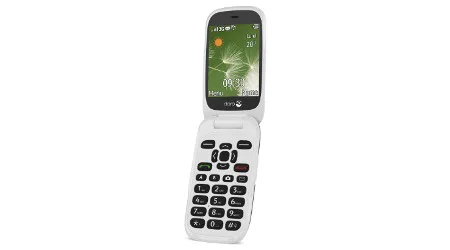
Doro 6520: Pricing and Specs
With a flip-phone design, easy-to-press buttons and a raft of accessibility features, the Doro 6520 is a simple alternative to the complexities of modern smartphones
Read more…These phones are designed for the budget concious, with prices starting below $100.
Doro phones are quite unlike your typical modern smartphone, and shopping for one requires a different perspective from the one needed when weighing up the latest iPhone. You need to be prepared for compromise in exchange for simplicity, especially in the following key areas:
Because of Doro's low-cost nature, it doesn't really make sense to pair the phone with a mobile contract plan. Instead, you can pick it up cheaply and pair it with one of these prepaid mobile plans under $20 per month.

With a flip-phone design, easy-to-press buttons and a raft of accessibility features, the Doro 6520 is a simple alternative to the complexities of modern smartphones
Read more…With a flip-phone design, easy-to-press buttons and a raft of accessibility features, the Doro 6520 is a simple alternative to the complexities of modern smartphones